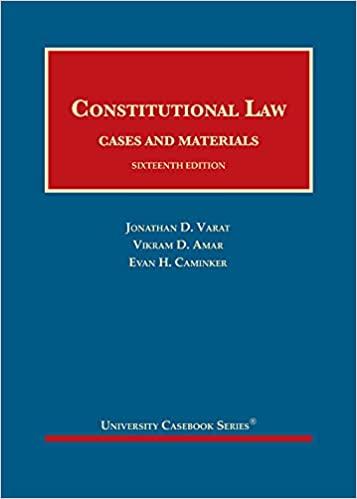Question
During the 2016 election season generated many headlines, some of which are notable for being blatantly false. Fake news ranged from, the Pope endorsed Donald
During the 2016 election season generated many headlines, some of which are notable for being blatantly false. Fake news ranged from, "the Pope endorsed Donald Trump" all the way to "Hilary Clinton is running a child sex ring out of a pizza shop."
Did "fake news" influence the outcome of the 2016 US Presidential election? While the answer is unclear, one thing is certain. The rise of fake news has reached unprecedented levels and has raised serious concerns about how citizens receive their news and form opinions.
The increase in fake news has several sources. Social media platforms like Facebook gave these stories the same visibility as news publications, such as those from the New York Times or Wall Street Journal. Moreover, these posts often had higher engagement rates (comments and reactions) resulting in them receiving even higher visibility and prevalence in users' news feeds.
Facebook CEO Mark Zuckerberg initially downplayed the problem, calling it a "pretty crazy idea" that fake news on Facebook influenced the election. Zuckerberg has since begun to address the fake news issue, but warns, "We must proceed very carefully... and must be extremely cautious about becoming arbiters of truth ourselves."
The Society of Professional Journalists has a code of ethics with four principles: seek truth and report it; minimize harm; act independently; and be accountable and transparent. But the transition to online platforms has fundamentally changed journalism. Google and Facebook control 80 percent of ad revenues; the same revenue source that news publishers depend on. Moreover, more than 40 percent of people now get their news from social media networks - making Facebook a de facto middleman in people's intake of news.
Facebook is taking the problem seriously, albeit with a great deal of caution. They have introduced efforts to help users spot fake news and inject indicators of trust (disputed tags) into their posts in partnership with a few institutions. They have also banned fake news sites from advertising on the network.
1.What is the ethical dilemma?
2.What are the alternatives for addressing the dilemma?
3.What is your recommended choice?
4.Discuss the reason you chose the alternative you did.
Assume that you are working at a media company and that your supervisor has asked you to look into this problem. Complete the case in the form of an organized and well-written memo to your supervisor.
Step by Step Solution
There are 3 Steps involved in it
Step: 1

Get Instant Access to Expert-Tailored Solutions
See step-by-step solutions with expert insights and AI powered tools for academic success
Step: 2

Step: 3

Ace Your Homework with AI
Get the answers you need in no time with our AI-driven, step-by-step assistance
Get Started


